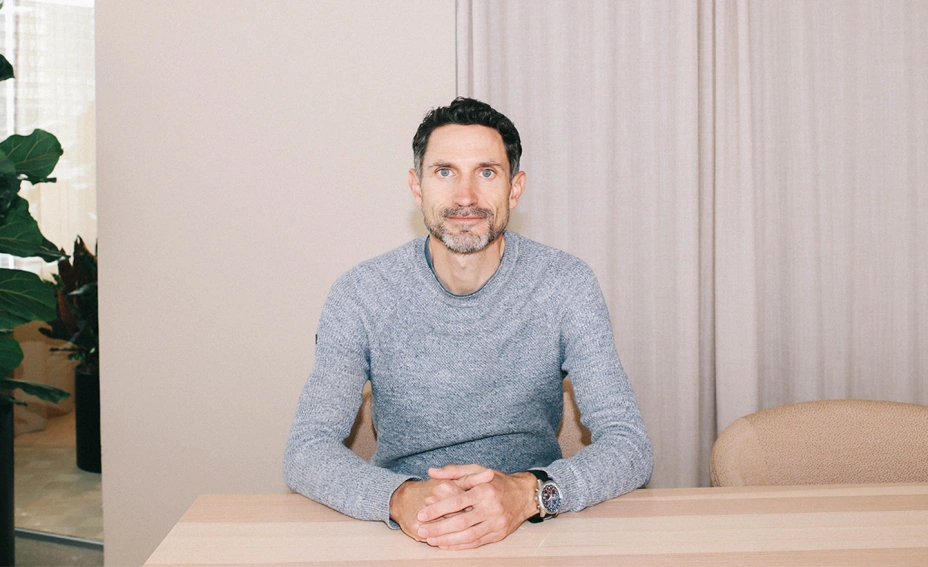Thomas Gmelch - how open banking can change the instant payment experience in Germany

We sat down with Thomas to chat about the challenges facing our customers in Germany, and how our newly launched Risk Signals product is coming to the rescue. Over the last few years, open banking has made it easier than ever to initiate payments and move money. But with fraud still proving a significant issue for merchants, Tink’s integration of a new suite of rule-based checks can help mitigate fraud risk. Here’s how.
We sat down with Thomas Gmelch to chat about the challenges facing our customers in Germany and the need for our newly launched Risk Signals product.
Over the last few years, open banking has made it easier than ever to accept payments and move money. Nevertheless, fraud is still a significant problem for merchants and now with this suite of rule-based checks we can accurately assess payment fraud risk.
Thomas is Tink’s Director of Payments for the DACH region. Joining Tink around 18 months ago, he is leading our efforts to showcase how we can mitigate fraud risk and offer a secure and fast payment method.
Thomas Gmelch has been Tink’s DACH Payments Director for the last 18 months, showcasing how we can prevent fraud risk – especially in markets without real-time settlement. As businesses are constantly challenged by rising costs and inflation pressure in the current economic climate, this leads to an additional need for smooth, high-performing and low-cost payment methods.
What’s keeping your customers awake at night at the moment?
There’s a continuous development of payment preferences: merchants need to ensure that they have relevant options available for different "target groups" of end-users. Merchants are constantly trying to make sure that they don’t lose any end-users this late in the checkout experience because the purchasing process takes too long or is too much work.
Furthermore, our clients are concerned about making sure they are optimising conversion rates in order to reduce the cost of acquisition (the total of expenses incurred when a business acquires a new client or a new asset). At Tink, we are trying to support the end users that like to use their bank account for payments. Almost everyone making a digital payment will have a bank account, so why not enable the largest consumer base to use that secure and trusted experience elsewhere in payments.
Additionally, payments fraud has risen significantly. There is a view among many merchants in the DACH market that settlement failure is a significant problem, caused by all sorts of factors that go beyond fake or stolen credentials. Default risk and friendly fraud are common issues for our customers in the German market. Clients are on the lookout for a smooth and secure payment method mitigating fraud and with a reduced chance of chargebacks.
Would you say that, in Germany and the DACH region, you feel like there's a unique set of challenges compared to other markets in Europe?
Every market has its characteristics and so Germany, or DACH as a whole, definitely does too. Making payments via your bank account and online banking services has been prominent in Germany for a while. However, when you think about the instant payment rails, it is not what we would call the default way to transact. Connectivity is a beast in Germany in terms of the fact that the banking landscape here is probably as diverse as it gets. Germany alone already caters for just under 30% of all bank connectivity – or of all bank connections – that we see in all of Europe. And when you think about how many countries we have in Europe and the population or the proportion of population, that already tells you that we have significantly more banks to service and to manage, compared to countries like the UK, for example.
This is definitely something that any open banking provider needs to work their way through. I think we are in a very fortunate situation because Tink acquired FinTecSystems – now known as Tink Germany – so we have more than ten years of history and working with these banks, building up those connections. I think it's fair to say that we have an unrivalled tech-stack and therefore performance level when it comes to coverage and stability.
We also need to create more awareness now that we have this great user experience with open banking, promoting its benefits and convenience. Open banking helps each and every online banking customer to easily connect and use their existing credentials to then facilitate a whole range of different payment-related processes and user experiences. It is about bringing open banking to life. Making our products available, tangible and experienceable so that we see a growing crowd of followers, and more adoption for open banking related services in German-speaking markets.
There is a lot of growth potential around new regulations, such as PSD3 and SEPA Payment Account Access (SPAA) scheme, coming to fruition that will allow us to make even better use of our products and provide an even more robust and quicker service to our customers. That should definitely also lead to a step change with regards to the adoption in this particular market.
We’ve just launched our new product feature Risk Signals, could you talk about why this is particularly important in the DACH market?
In its simplest form, Risk Signals is designed to mitigate fraud. As mentioned, fraud is a key issue for our customers, and our new offering means they no longer need to compromise between a fast checkout and reducing payment fraud risk, especially in markets like Germany without real-time settlement.
Based on our in-depth market and banking specific intel, we can conduct real-time risk checks during the payment process (based on data shared under a valid consent by the payer) verifying the payer’s ability to pay. Risk Signals is a tool box that we can add on top of the payment rail - it mitigates payment risk while providing all the inherent benefits of open banking powered payments like cost-effectiveness and an improved user experience. It is a clear competitive edge in the European market, particularly in Germany, where several banks do not process direct bank transfers immediately.
What do you foresee happening in the payments space in 2024?
Only two years ago, open banking payments availability was limited to fringe use cases in select markets. But now we've reached the point where it's becoming available to merchants everywhere. And the number of leading companies across all areas of financial services that now have open banking at the core of their offering is increasing all the time. For example, Adyen, one of the biggest payment platforms in the world, is making it available to all its German merchants and rolling it out across Europe. Plus, the open banking payments user experience – already competitive – is only going to get better. So we think there is a clear advantage for merchants that are early adopters. By tapping into the demand that already exists for a simple, secure, and streamlined payment experience (at low-cost), merchants can differentiate themselves in 2024 from the competition with open banking.
Also as Tink is part of Visa, we have a huge opportunity to leverage Visa's network and take innovative products to the market together. Watch this space.
More in Interviews

2024-02-12
10 min read
Building a more inclusive and diverse fintech industry
Hear from Tinkers who are closely involved with improving inclusion in the fintech industry and educating allies. While talking about their personal experiences, they also provide advice for members of the LGBTQIA+ community looking to enter the fintech arena.
Read more
Get started with Tink
Contact our team to learn more about what we can help you build – or create an account to get started right away.
